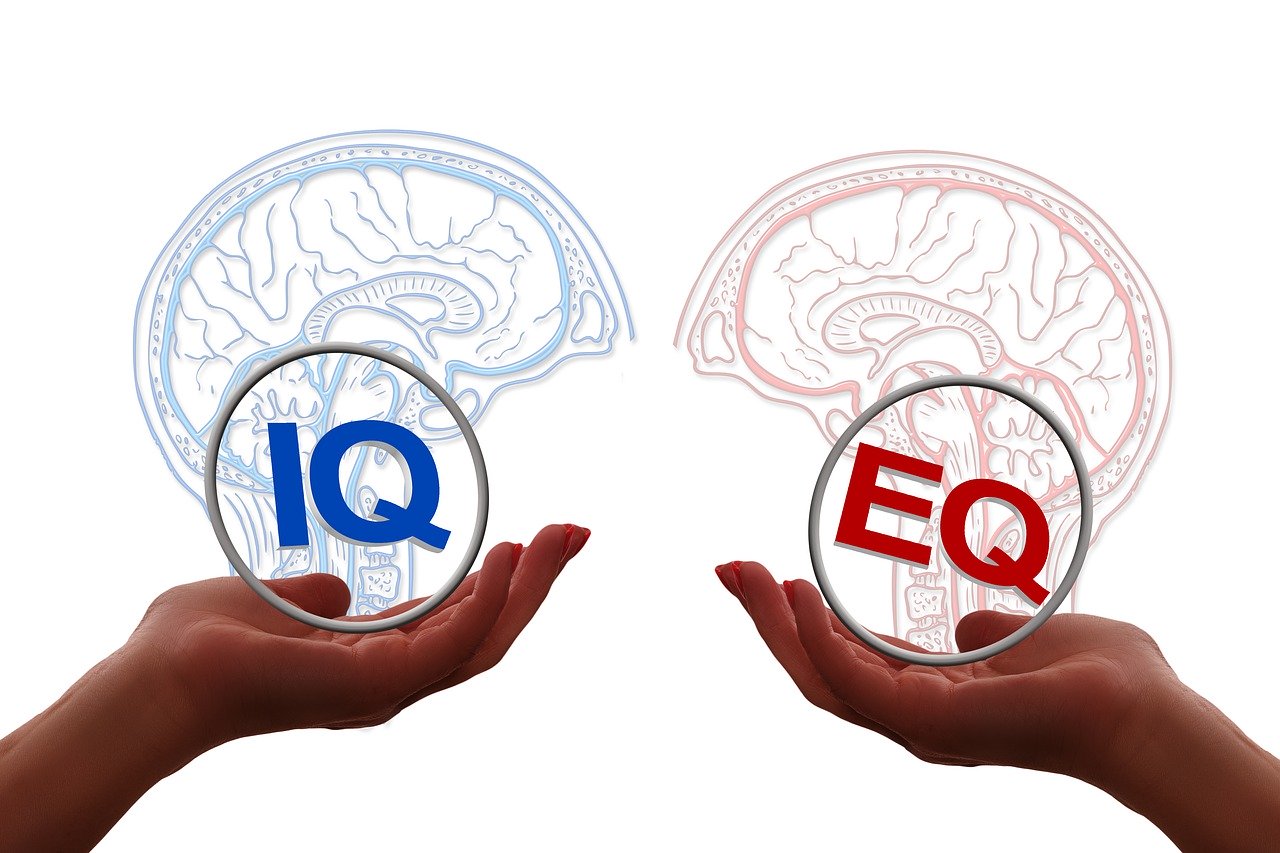
I attended a life-changing Emotional Intelligence Webinar by San Jose Public Library Staff Training Lead Nick Hedrick a few weeks ago.
In the past, the standard of excellence in achievement was determined by IQ or Intelligence Quotient.
Author Daniel Goleman, Ph.D. made a groundbreaking discovery when he noted that a person’s success includes not just IQ, but also Emotional Intelligence (EQ or EI.). He defines EI as “self-awareness and confidence, management of disturbing emotions and impulses, and increasing empathy. EI increases success.”
Nick covered the Five Elements of EI that Dr. Goleman mentions.
The Five Elements of Emotional Intelligence
Here are the five elements that Nick defined:
- Self awareness: the ability to understand our emotions and reactions.
- Self regulation: the ability to manage, control, adapt emotions, mood, reactions, and responses.
- Motivation: Harness our emotions to take appropriate action, commit, follow-through and work towards achievement of goals.
- Empathy: Work to discern the feelings of others, understand their emotions and utilize that understanding to relate more effectively.
- Social Skills: Build relationships, relate to others, lead, negotiate conflict as part of a team.
Tools to Support Emotional Intelligence Growth in Self-Awareness/Regulation, Empathy and Social Skills:
- Self-Awareness Chart: Chart an average day for a few days or weeks based upon your experiences each day. Use an emotional baseline (zero or neutral) with positive experiences above the baseline and negative experiences below the baseline.
- Small OR Medium OR Big Emotion: Note on the chart the size of your emotion related to the experience. For example, if it was a small emotion, you would be able to forget the experience easily. If it is a big emotion, you will remember the experience for some time.
- Emotional leakage occurs when you have a big emotion to a forgettable experience. For instance, would most people categorize the experience as forgettable? Be careful of these and modify your reactions.
- Your background may trigger you to have big emotions that others may not have. Be aware of these triggers and try to use one of the following disciplines to attain emotional baseline.
- Practice a discipline that will help you to return to your emotional baseline. Some examples may include mindfulness, laughter, talking to a close confidant, writing in a feelings journal, exercising, breathing, being thankful, etc.
- Place yourself in the other “person’s shoes” to experience empathy.
- Ask for feedback and ask open-ended questions. Develop your social skills.
Motivation to Improve
Nick recommends two steps in motivating yourself to improve. Improving EI is not easy if you have unrealistic goals or expectations. He recommends having a clear focus and clear path.
Having clear focus means that you have specified and realistic goals in mind. Your goals must be specific and clear. Try to see that improving your EI will not only benefit you, but will also benefit others around you. When you have a good EI, it is a “win-win” situation for everyone.
You can make sure that you have a clear path trying to envision possible obstacles, disruptions, or distractions. Most importantly, realize that this change is not going to happen overnight. You must be persistent in your attempt to change.



Add a comment to: The Extra Ingredient to IQ: Emotional Intelligence